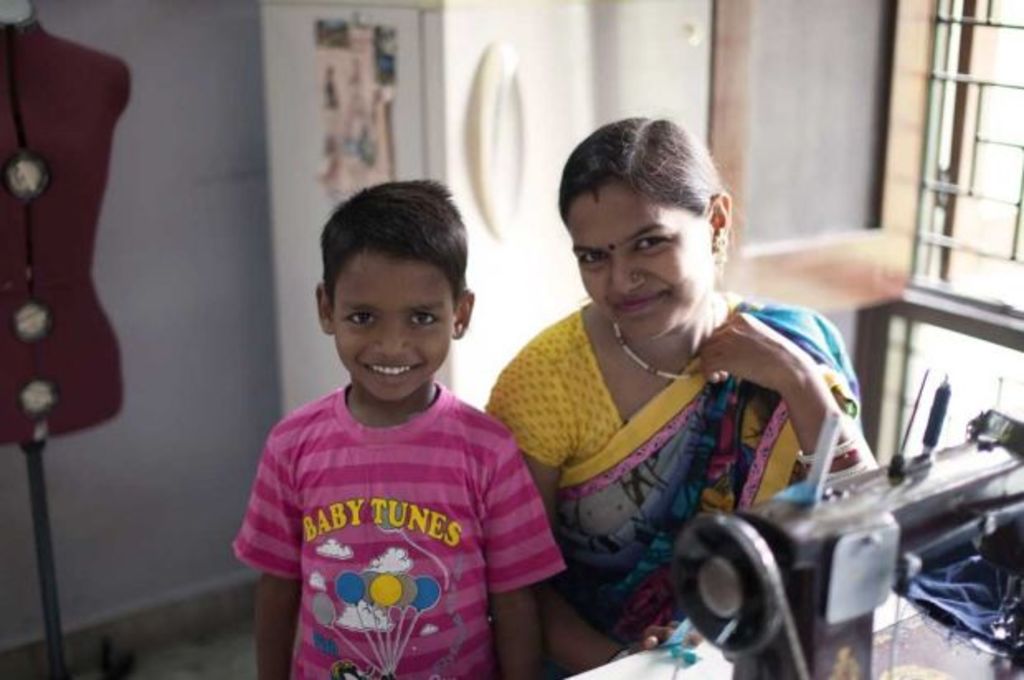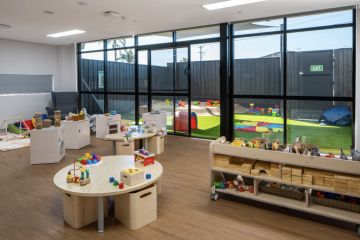Australian brand One Another supporting artisans in the developing world

Photographer and graphic designer Rick Carter is a bit of a wanderer – and he wouldn’t have it any other way. “I have always been addicted to travelling and it was during an adventure that I fell in love with photography and the beauty of capturing cultures and their people.”
It was during one of his adventures that inspiration struck. “I was in India photographing the work of Opportunity International Australia, who provide small loans to impoverished women,” he says. “It was here in the urban slums and rural villages that my wife Annette and I met these women and discovered their extraordinary traditional artisanal skills.”

The One Another workshop supports 15 women and four men.
The result of their trip was ethical homewares brand One Another, which launched in 2013 with the goal of creating an oeuvre that combines the couple’s love of design, with the women’s traditional techniques.
“It took some time to find the right collectives to partner with, but we have been working with the same team in India since the beginning,” he says.

Each finished product bears the mark of its maker.
The workshop supports 15 women and four men. “They work five days a week, which is quite unusual for India,” says Carter. “They receive fair pay and safe working conditions, that encourages training and a communal place for the women to support each other. Since then we have also partnered with women in Honduras, Uganda and Bangladesh.”
Producing cushions, table accessories, and women’s jewellery and bags, the synthesis of the brand’s collections is minimal lines, bold graphics, colour blocking and mid-century line work, combined with the handmade qualities of the artisans they work with.

The synthesis of the brand’s collections is minimal lines, bold graphics, colour blocking and mid-century line work.
“Each piece modernises the artisans’ traditional skills,” says Carter, “whether it is hand-loomed, hand-woven, hand-embroidered or hand-thrown, each product embraces the unique qualities and textures of producing by hand.”
The textiles used are produced in India and South Africa, with each finished product bearing the mark of its maker.
- Related: Australia’s new ceramicists
- Related: The retro trend making a comeback
- Related: How to style your home for winter

One Another’s textiles are produced in India and South Africa.
“Each product carries the signature of the embroiderer or weaver who made it,” Carter says. “Most of our artisans are women, as they are typically poorer and have fewer options for earning a livelihood. Some of them are widows, single parents or have parents who are too sick to work. When they create a product for One Another, it helps provide them with safe, stable employment with fair pay, the ability to work from home should they need to care for their family, and opportunities to train and develop new skills.”
Recently One Another launched its first ceramics collection in collaboration with a 25-year-old family-run pottery workshop in Nepal.

The company have recently launched their first ceramics collection and released an organic tea to celebrate.
“To partner the collection we have released organic tea,” Carter says. “The tea estate is at the foothills of the Himalayas, and empowers over 200 farmers by providing them better revenues, free housing and free education for their children. Every afternoon in our Surry Hills studio, we make a pot of tea and drink it from our cups. It is exciting to have made something functional and beautiful that has made a real difference to someone on the other side of the world.”
We recommend
States
Capital Cities
Capital Cities - Rentals
Popular Areas
Allhomes
More







